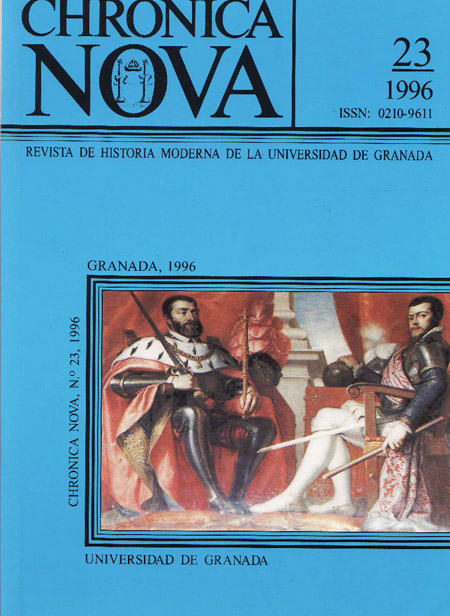Historicismo e identidad en la caracterización del pensamiento español
DOI:
https://doi.org/10.30827/cn.v0i23.2104Palavras-chave:
Concepciones del mundo, imagen del mundo, caracteres esenciales, filosofía y literatura, realismo, moralResumo
Se buscan los rasgos definitorios de la producción ideológica española. Para ellos se parte de la teoría diltheyana de las Concepciones del Mundo y se constata que todas ellas mantienen la misma estructura, consistente en una “conexión” en la que se decide acerca del significado y sentido del mundo, sobre la base de las imágenes que de él fabrican la literatura, la filosofía, y que son analizadas para ver si en ellas se dan notas esenciales que puedan servir para definir la identidad de la cultura española. En tal caso, tales notas han de considerarse, no como caracteres determinantes y sí, en palabras de Ortega y Gasset, como “propensiones predominantes”. Entre tales notas están la convergencia entre filosofía y literatura, el realismo de la producción ideológica y su vertiente moral.
Downloads
Downloads
Como Citar
Edição
Secção
Licença
Nuestra revista se atiene a las recomendaciones para la implementación del Artículo 37 Difusión en Acceso Abierto de la Ley de la Ciencia, la Tecnología y la Innovación:
- Los/as autores/as cuyas contribuciones sean aceptadas para su publicación en esta revista conservarán el derecho no exclusivo de utilizar sus contribuciones con fines académicos, de investigación y educativos, incluyendo el auto-archivo o depósito de los artículos aceptados en repositorios institucionales o temáticos de acceso abierto de cualquier tipo en un plazo máximo de seis meses.
- Preferiblemente se permitirá el uso de la versión publicada de las contribuciones científicas, que estarán accesibles en abierto tan pronto como sea posible.
-
Que en caso de que el trabajo sea aprobado para su publicación, el/la autor/a autoriza de manera ilimitada en el tiempo a la entidad editora para que incluya dicho texto en Chronica Nova y pueda reproducirlo, editarlo, distribuirlo, exhibirlo y comunicarlo en el país y en el extranjero por medios impresos, electrónicos, CD, Internet o cualquier otro medio conocido o por conocer.






 ISSN-e: 2445-1908
ISSN-e: 2445-1908










